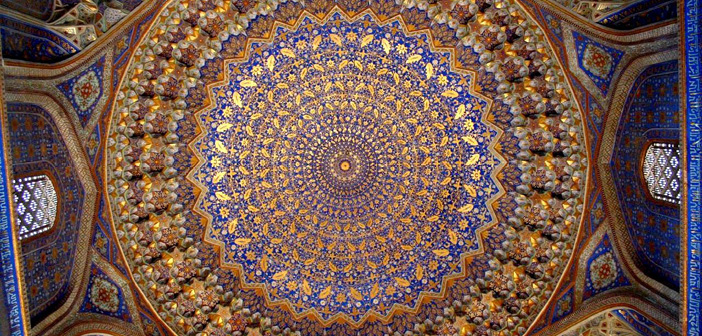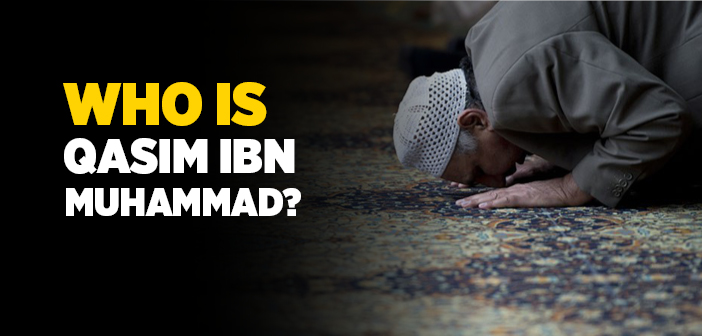Who is Abu ali Farmadi? What kind of person Abu Ali Farmadi? When did Abu Ali Farmadi live?
Abu Ali Farmadi [1010 – 1084]
Abu Ali Farmadi (may Allah have mercy on him) was born in the village of Farmad near the town of Tus in Khorasan in the year 401 after the hijrah. After completing his elementary education he entered the madrasah of the famous Sufi Abdulkarim Qushayri in Nishabur.
In a very short time he became one of his most select students. After learning the outer sciences he then took permission from his master to leave the madrasah in order to settle in a Sufi lodge and progress in the inner sciences of the heart. For a time he occupied himself with struggle and abstinence.
He benefitted from many scholars and guides. Eventually he connected himself to Abu al-Hasan Kharaqani and reached great ranks with him. Soon after, he was given the duty of guiding others. He strived greatly in this struggle. His speech was beautiful, clear, eloquent and effective. He would adorn his talks with many similitudes, which spiritually adorned the hearts. His assemblies of guidance were likened to a garden filled with colourful, fragrant and rare flowers and fruit trees[1].
He taught many great scholars and gnostics such as Imam Ghazzali and Yusuf Hamdani.
Imam Ghazzali meticulously continued his practice of supererogatory worship, dhikr and awrad that Farmadi inspired in him based on the essence of tasawwuf and need for eternal salvation. He also abided by the principles of the struggle against the nafs that his teacher applied[2] .
Imam Ghazzali says:
“Abu Ali Farmadi taught me that it was essential that a murid treat his shaykh with complete and beautiful manners (adab)…”[3]
Abu Ali Farmadi was known by the titles Ruqnu al-Islam (a great and strong personality of Islam), Qutbu Zaman (the Pole of his time), and Shaykh al-Mashayukh (the shaykh of the shaykhs). He was the teacher of the shaykhs from Khorasan, the unmatched murshid of the century and one of the greatest guides of the ahl al sunnah wa’l jamah.
Abu Ali Farmadi (may Allah have mercy on him) placed great importance on both the outer and inner principles of the religion. He would also tolerate the ‘people of love’ who would experience divine ecstasy from time to time and he would treat them with respect.
He possessed deep contemplation and wisdom. Despite his serious and dignified stance, his beauty overcame his majesty and he was extremely compassionate and kind.
He Served Others with Discernment and Adab
Abu Ali placed much importance on service in the path of Allah. When he served others he did so with great adab and discernment and was very careful about what and when he did something, and where and how.
One time his master entered the hamam of the lodge. Farmadi immediately went to the well and drew up a few bucketful of water and filled the water tank. His master was very pleased with this act and this sensitivity. When he came out of the hamam he asked who brought the water. Abu Ali did not say anything. When his master asked a few times he was obliged to tell him that he had brought the water. His master gave him the good news that he would be given great blessings and spiritual ranks on account of his service to others[4].
Service of others with good manners is at the top of the list of beautiful traits that are a means for one’s spiritual advance.
His Modesty and Nothingness
Almighty Allah manifests His mercy in his slave who walks the earth in humility[5]. They live in awareness of their humility and sense of nothingness compared to Allah.
One time Abu Ali Farmadi was giving a sermon in a gathering in Nishabur. The great scholar Imam al-Haramayn Juwayni was also present. Juwayni asked Abu Ali Farmadi the following:
“Which group of people is indicated in the hadith “The scholars are the heirs of the prophets”.
In great humility Farmadi replied:
“The members of that group are neither like those who ask nor those who are asked about this. The heirs of the prophets are like those righteous individuals who are sleeping at the door of that masjid”. He then pointed to the tomb of Muhammad ibn Aslam.[6]
It must have been due to the influence of these words that Imam al-Haramayn leaned towards tasawwuf in his later years and occupied himself with spiritual discipline (riyadah)[7].
His Guidance of Nizam al-Mulk
Abu Ali Farmadi (may Allah have mercy on him) would spread the truth in a very sweet and pleasant manner. In particular, he would delicately correct the errors of the rulers and guide them towards the truth. One of those rulers who was blessed with receiving his guidance was the vizier of the Seljuqs, Nizam al-Mulk, who had established the Nizamiyyah madrasah.
Nizam al-Mulk was a scholar of virtuous character. He would adorn his assemblies with scholars and faqihs and spent most of his time with them. Those around him would criticise him saying:
“These men are preventing you from much of your business”. He would respond:
“These men are the embellishment and beauty of this world and the hereafter; were I to carry them on my head I would not be considered to be doing too much”.
Whenever the scholars and the gnostics entered his presence he would immediately stand up and greet them and seat them next to him. Whenever Abu Ali Farmadi entered he would immediately stand and sit him in his own seat and kneel down before him in all courtesy. One day when someone criticised him about this he explained:
“When the other scholars approach me they exalt me and praise me more than I deserve, saying: “You are like this and you are like that”… In this way they inflate my ego and make me tend towards pride. However Abu Ali Farmadi reminds me of my faults and the injustices that I have committed and warns me for the sake of Allah. My nafs is thus shattered and I turn back from many errors I have made”.
It must have been through the blessings of the warnings and guidance he received from Abu Ali Farmadi that Nizam al-Mulk placed much importance on performing salat on time. When the adhan was called none of his affairs could prevent him from performing the prayer. He would continue to fast on Mondays and Thursdays. He established many endowments (awqaf) and gave out much in charity.
Nizam al-Mulk showed a great deal of respect towards the masters of tasawwuf. One time when he was censured for this, he narrated the following event:
“I used to serve one of the kings. One day a blessed man came to me and said:
“For how long will you serve one who will end up as food for dogs tomorrow? You should serve those who guide you. Do not serve those who will become fodder for dogs”.
I did not understand the implications and veiled message in these words. That night, the Amir whom I was in service of became drunk and went out in that state. There were dogs in that Amir’s garden and they would savagely attack any strangers who came by night. That night they did not recognise him and ripped into him. In the morning we saw that that ruler had been eaten by the dogs. Now I am in search of people like that shaykh who advised me in all sincerity, I am in pursuit of them”[8].
At every opportunity, Nizam al-Mulk would attend the talks of Farmadi. One time he became very touched by his words and his tears wet his robe. Farmadi said to him:
“Do not weep to wet your clothes”. Then he continued:
“If the entire world were to be the property of one person and he gave out from this property for the goodness of man he would still not reach Allah with this act” (It is only through Allah’s mercy that he can do so).
After a period of silence he then said:
“The ruler will be taken to the place of judgement from his throne”.
He then warned Nizam al-Mulk of the following:
“Never forget! It is from your state throne that they will take you to the place where you will be taken to account”[9].
Abu Ali Farmadi (may Allah have mercy on him) passed away in Tus in the year 1084.
One of his wise sayings
In an exposition of the following verse:
‘(My Messenger) Say, ‘If you love Allah, then follow me and Allah will love you and forgive you for your wrong actions. Allah is Ever-Forgiving, Most Merciful’.
“On the Night of the Ascension the Messenger of Allah (peace and blessings be upon him) saw a group from the angels. They were constantly occupied with saying; “Muhammad, Muhammad, Muhammad…” There was no group of angels more virtuous than this group in all of the seven heavens. The prophet (peace and blessings be upon him) asked angel Gabriel:
“Who are these?” Gabriel replied:
“O Messenger of Allah! Just as your ahl al bayt are the most honourable and respected of humans on earth, these angels are the most honourable and sacred of the heavens”.
“O Gabriel how is it that they have come to have such great honour?”
Gabriel replied:
“The wird of these angels is your honourable name of Messenger of Allah. It is because of this that they have been made superior to all other angels”.
And so the seven heavens are kept raised by love for Him and respect in following him”[10]
[1]. Sem’ani, Ansab, X, 125; Abdulghafir, Tarihu Naysabur, p. 628.[2]. Dhahabi, Siyer, XIX, 323-324; Subki, Tabakat, VI, 209.[3]. Ghazzali, Ihya, IV, 178.[4]. Jami, Nafahat, s. 514; Ahmad Hilmi, Hadiqatu al Awliya, p. 13.[5]. See Furqan, 63.[6]. Attar, p. 276.[7]. DIA, “Juwayni” mad.[8]. Ibn Kathir, al Bidaya, XII, 173.[9]. Ukayli, Bughyat al Talib fiy Tarihi Haleb, Daru al Fikr, V, 2488-2489.[10]. Muhammad Parsa, Fasl al-Hitab, p. 600.
Source: Osman Nuri Topbaş,The Golden Chain of Transmission Masters of the Naqshinandi Way, Erkam Publications





